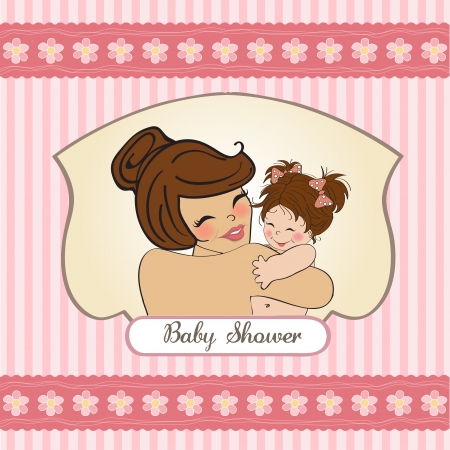Understanding Ofsted and Its Role in Childcare
If you are looking for a childminder in the UK, you have likely come across the term “Ofsted” during your search. Ofsted, short for the Office for Standards in Education, Childrens Services and Skills, is an independent government body responsible for inspecting and regulating services that care for children and young people, including childminders. Ofsted’s main purpose is to ensure that childcare providers maintain high standards of safety, learning, and well-being for children. For parents and carers, Ofsted ratings offer a trusted way to compare different childminders and make informed decisions about their childs early years care. Understanding what Ofsted does—and why its assessments matter—can help you feel confident that you are choosing a nurturing and secure environment where your little one can thrive.
2. How to Find and Access Childminder Ofsted Ratings
Choosing the right childminder is a big step for any family, and understanding Ofsted ratings can give you peace of mind about your childs care. Here’s how you can easily find and access the latest Ofsted inspection results for registered childminders in England.
Where to Look Up Ofsted Ratings
The most reliable place to check childminder Ofsted ratings is directly through official channels. Below is a handy guide with key sources:
| Resource | Description | Access Details |
|---|---|---|
| Ofsted Official Website | The central database for all registered providers, including their inspection reports and ratings. | Visit Ofsted Reports Portal and use the search tool by entering the childminder’s name, postcode, or registration number. |
| Your Local Authority (LA) | LAs maintain lists of approved local childminders and often include Ofsted grades or links to reports. | Contact your council’s Family Information Service or visit their website for guidance and local directories. |
| Childcare Platforms | Websites such as Childcare.co.uk aggregate details on local childminders, including recent Ofsted ratings and parent reviews. | Search by location or filter by rating, then verify results against the official Ofsted site for accuracy. |
Step-by-Step: Checking Ofsted Ratings Online
- Go to the Ofsted Reports Portal.
- Enter either the childminder’s full name, registration number, or your local area/postcode in the search bar.
- Select the correct provider from the results list.
- Click on their profile to view the latest inspection report and see their current rating (Outstanding, Good, Requires Improvement, or Inadequate).
- If you need clarification or a printed copy, your local authority can assist further—don’t hesitate to ring them up!
Tip for Parents: What If You Can’t Find Your Childminder?
If you’re struggling to locate your chosen childminder’s details, double-check that they are properly registered with Ofsted. Sometimes names change or details may be listed under a slightly different address. Your local council’s Family Information Service is a great point of contact for sorting this out quickly.

3. Decoding The Ofsted Grading System
When you’re choosing a childminder in the UK, understanding the Ofsted grading system is crucial for ensuring your child receives high-quality care and early years education. Ofsted—the Office for Standards in Education, Children’s Services and Skills—inspects registered childminders regularly and assigns them a grade based on their performance. But what do these grades actually mean for your family? Let’s break down each one to help you make an informed decision.
Outstanding
This is the highest accolade a childminder can receive from Ofsted. An “Outstanding” grade means the childminder consistently goes above and beyond in all areas of care, learning, and development. You can expect exceptional teaching practices, excellent safeguarding, and a highly stimulating environment that nurtures every aspect of your child’s growth. If you find an Outstanding-rated childminder, it’s a strong indicator that your little one will thrive under their guidance.
Good
A “Good” rating shows that the childminder meets all Ofsted requirements and provides effective care and education. Most registered childminders fall into this category, offering a warm, safe, and supportive setting where children make steady progress. You can feel confident that your child’s wellbeing and learning are well looked after in these settings, even if there are a few minor areas for improvement noted by inspectors.
Requires Improvement
If a childminder is rated as “Requires Improvement,” it means there are some aspects of their practice that need attention. While they meet many legal requirements, there may be issues with planning activities, supporting children’s development, or record-keeping. Ofsted will have given them clear guidance on what needs to change, so look out for evidence of action being taken when you visit or speak to the provider.
Inadequate
An “Inadequate” rating is a serious red flag. This means that key standards for safety, teaching, or leadership are not being met, putting children at potential risk. Ofsted will often impose urgent actions or restrictions until improvements are made. If you come across an Inadequate grade during your search, it’s wise to proceed with caution or consider alternative childcare options to ensure your little one’s safety and wellbeing.
Why These Grades Matter
The Ofsted grading system is designed to give parents peace of mind about the quality of early years care available in their community. By understanding what each grade means, you’ll be better equipped to ask the right questions and find a childminder who matches your expectations and values for your child’s earliest experiences.
4. What Ofsted Reports Tell You About Everyday Childcare
When you’re looking for a childminder in the UK, Ofsted reports aren’t just a tick-box exercise—they give you real insight into what your child’s daily life could look like. But what do these reports actually tell you about the day-to-day care your little one will receive? Let’s break down the main areas Ofsted inspects and why they matter so much for your family.
Key Areas Inspected by Ofsted
| Inspection Area | What It Means for Your Child |
|---|---|
| Safety and Welfare | Checks if the environment is secure, clean, and well-maintained; ensures there are clear safeguarding procedures to protect children from harm. |
| Learning Environment | Assesses whether there are plenty of age-appropriate toys, books, and resources that help stimulate curiosity and learning through play. |
| Wellbeing and Emotional Support | Looks at how the childminder supports children’s emotional health—are children happy, settled, and forming good relationships? |
| Developmental Progress | Observes how well the childminder helps children learn new skills and reach milestones appropriate for their age. |
| Partnership with Parents | Considers how the childminder communicates with families, including updates about your child’s progress and wellbeing. |
Why These Areas Matter in Daily Life
If you read an Ofsted report that praises a childminder’s attention to safety, you can feel reassured your child is in a secure setting every day. A positive judgement on learning environment means your child will have lots of opportunities to play, explore, and discover new things. When wellbeing is rated highly, it shows that children feel cared for, confident, and supported emotionally—vital for their happiness and self-esteem.
The section on developmental progress gives you clues about how your childminder will encourage skills like talking, sharing, or counting during everyday routines. And strong partnership with parents means you’ll always be kept in the loop about what your child has been up to—perfect for starting those “What did you do today?” conversations after pick-up.
All these areas together create a picture of what daily life might look like for your little one. So when reading an Ofsted report, pay special attention to these sections—they really do shape your child’s experience each day at their childminder’s home.
5. Beyond the Grade: Questions to Ask Your Childminder
While Ofsted ratings give you a solid starting point, engaging directly with your potential childminder is just as important. Open and thoughtful conversations help you understand whether their approach truly fits your child’s needs and your family values. Here are some key conversation starters and questions, inspired by common themes found in Ofsted reports, that you can use when visiting or interviewing a childminder.
Understanding Everyday Practice
How do you support children’s learning and development?
This question encourages the childminder to share specific examples of how they nurture curiosity, creativity, and early skills in line with the EYFS (Early Years Foundation Stage) framework highlighted in Ofsted inspections.
Can you describe a typical day here?
Ask about routines, activities, and how time is balanced between structured learning and free play. This gives insight into the environment your child will experience.
Safeguarding and Wellbeing
What steps do you take to ensure children are safe and well cared for?
Relating to Ofsted’s focus on safeguarding, this question helps you assess the childminder’s policies on everything from accident prevention to managing allergies or medical needs.
How do you handle behavioural challenges?
Understanding their approach to behaviour management ensures it aligns with your own methods at home and supports positive development.
Working in Partnership
How do you communicate with parents about their child’s progress?
Regular updates are often praised in good Ofsted reports. Ask how information is shared—whether through daily chats, written notes, or digital platforms—so you remain involved in your child’s journey.
If my child needed additional support, how would you manage this?
This shows the childminder’s readiness to adapt care for individual needs and collaborate with outside professionals if necessary—a key consideration highlighted in outstanding settings.
Tip: Bring Along the Ofsted Report
If there are comments in the most recent Ofsted report that stand out to you (positive or areas for improvement), use these as conversation points. For example: “I noticed Ofsted mentioned improvements in outdoor play—could you tell me what changes have been made?” This demonstrates that you’re an engaged parent and values transparency.
Remember, while ratings provide reassurance, these conversations are your opportunity to build trust and ensure the setting feels right for your family. The more open the dialogue, the better informed your decision will be.
6. Making the Best Choice for Your Child
Combining Ofsted Insights with Your Own Observations
Ofsted ratings are a helpful starting point when searching for a childminder, but remember, they’re just one piece of the puzzle. To make the best choice for your child and family, it’s essential to blend these official insights with your own impressions and knowledge of your child’s unique needs. After checking a childminder’s latest Ofsted report online, arrange a visit so you can get a real feel for their approach and environment.
Top Tips for Choosing the Right Childminder
- Visit in Person: Ofsted reports offer a professional view, but seeing the setting yourself helps you spot things that matter to you – like how toys are organised or how the garden is used.
- Observe Interactions: Watch how the childminder engages with children. Are they warm, attentive, and encouraging? Do children seem comfortable and happy?
- Ask Questions: Don’t hesitate to ask about routines, meals, nap times, outdoor play, and how they handle behaviour or emergencies.
- Consider Your Child’s Personality: Every child is different! Think about what sort of environment suits your little one best – busy and social, or calm and cosy?
- Trust Your Instincts: You know your child better than anyone. If something doesn’t feel right, it’s okay to keep looking.
Your Family, Your Choice
The best childminder for your family will be someone who not only meets Ofsted’s high standards but also shares your values and makes your child feel safe and loved. Take your time, trust both the facts and your feelings, and you’ll find a wonderful match for your little one’s early years adventure.


